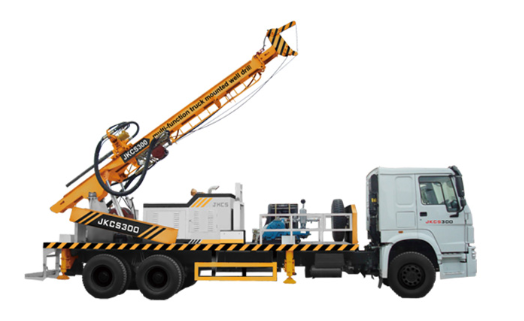A Comprehensive Comparison between Rotary Drilling Rigs and Percussion Drills
In the realm of drilling operations, the choice between various drilling techniques and equipment plays a pivotal role in determining the success and efficiency of projects. Two commonly utilized methods are rotary drilling rigs and percussion drills. In this comprehensive analysis, we delve into the features, benefits, and applications of these techniques to assist you in making informed decisions for your drilling needs.
Understanding Rotary Drilling Rigs
Rotary drilling rigs are sophisticated machines engineered to dig deep into the Earth's crust, making them invaluable in various industries such as construction, mining, and oil exploration. These rigs operate by rotating a drill bit that breaks and crushes the ground, while a fluid (commonly known as drilling mud) is circulated down the drill string to cool the bit and bring the cuttings to the surface. This method allows for efficient penetration through tough rock formations and sediments.
Benefits of Rotary Drilling Rigs:
Exceptional Depth: Rotary rigs are designed to reach considerable depths, making them essential for projects that require reaching vast reserves or conducting extensive geological surveys.
Versatility: These rigs accommodate various drill bits and can be adapted for different formations, offering versatility in drilling through diverse ground compositions.
Sample Collection: The cuttings brought to the surface offer valuable insights into the geological strata, aiding geologists in understanding the Earth's composition.

Exploring Percussion Drills
Percussion drills, on the other hand, employ a rapid hammering action to break the ground into smaller fragments. This method is particularly useful for shallower holes and softer ground types. The drill bit rapidly moves up and down while rotating, effectively pulverizing the soil or rock.
Benefits of Percussion Drills:
Speedy Drilling: Percussion drills are known for their high drilling rate, making them an ideal choice for projects that require swift penetration through softer materials.
Cost-Effectiveness: These drills are often more affordable than rotary rigs, which can make them a preferable option for smaller-scale projects with budget constraints.
Minimal Water Usage: Unlike rotary drilling, percussion drills require minimal to no drilling mud, reducing the environmental impact and costs associated with mud disposal.
Comparative Analysis
To determine the most suitable drilling method for your project, a careful analysis of various factors is imperative.
Geological Composition: Understanding the type of ground you're drilling through is vital. For hard rock formations, rotary drilling rigs prove advantageous due to their ability to crush and break challenging materials. On the other hand, percussion drills are better suited for softer soils.
Project Scale: The scale of your project is a significant determinant. For large-scale projects requiring deep penetration, rotary drilling rigs are the go-to option. Conversely, percussion drills are well-suited for smaller projects that demand quick drilling.
Budget Considerations: Budget constraints can heavily influence your choice. While rotary rigs offer extensive capabilities, percussion drills can be a cost-effective alternative for projects with limited financial resources.
Selecting the Right Method for Your Project
In conclusion, both rotary drilling rigs and percussion drills have their distinct advantages and are tailored for specific drilling requirements. Making an informed decision necessitates a thorough evaluation of factors such as geological conditions, project scope, and budget limitations. By aligning these factors with the benefits of each method, you can optimize your drilling operations and achieve successful outcomes.
Remember, when selecting a drilling method, it's imperative to consult with industry experts and engineers who can provide tailored recommendations based on the unique characteristics of your project. With the right approach, your drilling endeavors are poised for efficiency, cost-effectiveness, and overall success.
577
0
0


Comments
All Comments (0)